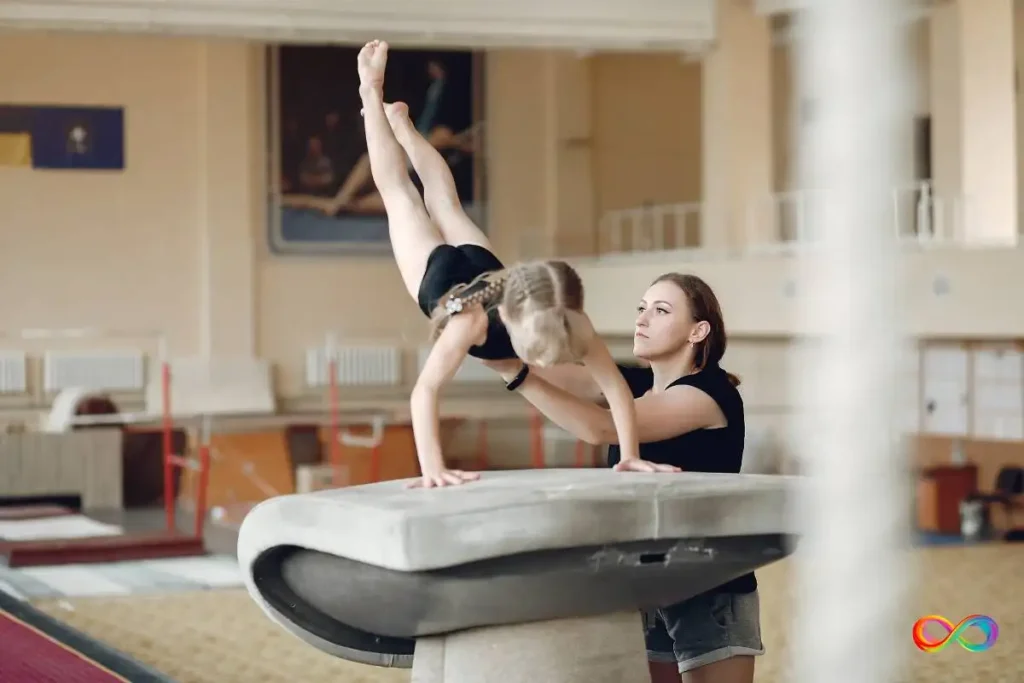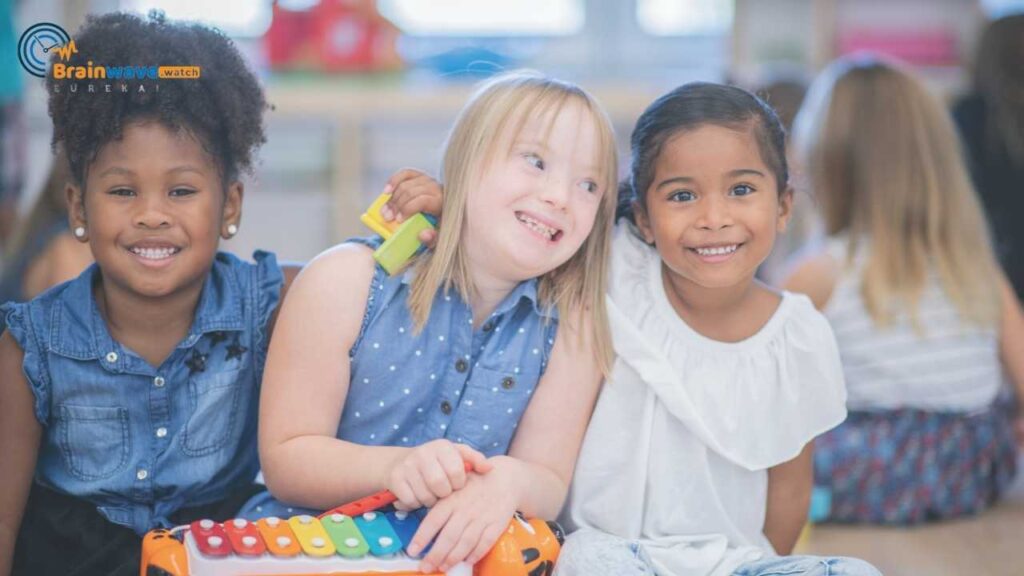Gymnastics is an effective way to enhance motor skills in children with autism. It provides a safe and structured environment for children to develop their motor skills, including improving coordination and balance.
Improving Coordination
Children with autism often struggle with coordination, making it difficult for them to perform everyday tasks. Gymnastics can help improve coordination by providing various activities that require children to use their full body. By practicing these activities, children can enhance their ability to coordinate their movements and perform tasks more efficiently.
Developing Balance
Balance is another area where children with autism often struggle. Gymnastics can help develop balance by providing activities that require children to balance on different surfaces and in different positions. By practicing these activities, children can improve their balance and reduce the risk of falls.
Gymnastics can also help children with autism develop other motor skills, such as strength, flexibility, and agility. These skills can help children perform everyday tasks more easily and improve their overall quality of life.
Social Interaction and Communication
Gymnastics is an excellent way for children with autism to improve their social interaction and communication skills. Through various activities and exercises, children can learn to interact with others and communicate more effectively.
Encouraging Teamwork
One of the benefits of gymnastics is that it encourages teamwork. Children with autism may struggle with social interactions, but being part of a team can help them learn to work together towards a common goal. Gymnastics provides a structured environment where children can learn to take turns, share equipment, and support each other.
Building Social Skills
Gymnastics can also help children with autism build social skills. Through group activities, children learn to communicate with others and develop friendships. They can practice their social skills in a safe and supportive environment, which can help build their confidence and self-esteem.
Gymnastics can be an effective way for children with autism to improve their social interaction and communication skills. By encouraging teamwork and building social skills, gymnastics can help children with autism develop the skills they need to succeed in social situations.
Sensory Integration Benefits
Gymnastics has been found to have significant benefits for children with autism spectrum disorder (ASD) in terms of sensory integration. According to a study published in the Journal of Autism and Developmental Disorders, sensory integration interventions, such as gymnastics, can help children with ASD improve their sensory processing abilities.
Sensory integration refers to the way the brain processes sensory information from the environment. Children with ASD often have difficulty processing sensory information, which can lead to sensory overload or sensory-seeking behaviors. Gymnastics helps to provide a controlled and structured sensory environment, which can help children with ASD learn to process sensory information more effectively.
During gymnastics classes, children are exposed to a variety of sensory experiences, such as jumping, rolling, and balancing. These activities can help children with ASD improve their proprioceptive and vestibular processing, which are essential for body awareness and balance. Additionally, gymnastics can help children with ASD improve their tactile and auditory processing, as they are exposed to different textures and sounds during the exercises.
Boosting Confidence and Self-Esteem
Gymnastics can be a powerful tool to boost the confidence and self-esteem of children with autism. Gymnastics allows children with autism to celebrate small achievements, regardless of the scale of the achievement. Positive reinforcement not only helps build their self-esteem but also instills a love for the sport and the learning process itself.
In gymnastics, children with autism can develop a sense of accomplishment and pride in their abilities. They can learn to set goals, work hard, and achieve success. This sense of accomplishment can transfer to other areas of their lives, such as school and social interactions.
Gymnastics also provides a safe and supportive environment for children with autism to learn and grow. According to a source, social competence influences self-esteem. In gymnastics, children with autism can develop social skills, such as communication, teamwork, and cooperation, which can boost their self-esteem.
Promoting Healthy Lifestyle Habits
Gymnastics is not only a fun activity for children with autism, but it can also promote healthy lifestyle habits. The physical activity involved in gymnastics can help children with autism to maintain a healthy weight, improve their cardiovascular health, and increase their overall fitness levels.
Gymnastics can also help children with autism develop healthy eating habits. By participating in gymnastics, children can learn about the importance of proper nutrition and how it can affect their performance. Coaches can also guide healthy eating habits and offer suggestions for healthy snacks and meals.
Gymnastics can help children with autism develop good sleep habits. Regular physical activity can improve sleep quality and duration, which is important for overall health and well-being. Coaches can also guide on establishing a bedtime routine and creating a sleep-conducive environment.







